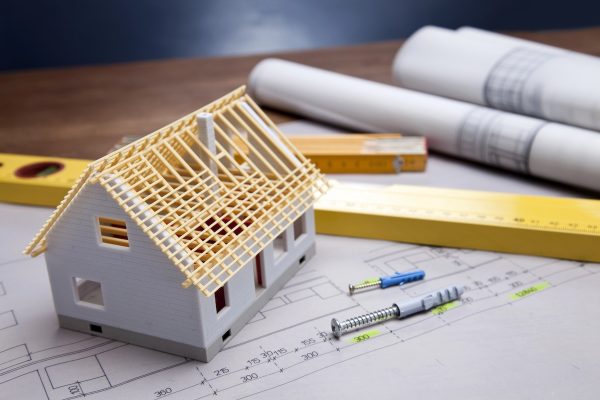Navigating the Landscape: Key Features and Algorithm for Choosing Property Management Software

Estimated reading time: 1 minute
In the world of property management, efficiency is key. Whether you’re overseeing a handful of residential properties or a vast commercial portfolio, the right software can make all the difference in streamlining operations, optimizing workflows, and ultimately maximizing profitability. With a plethora of property management system (PMS) solutions flooding the market, it’s crucial to understand the most important features and the algorithm for selecting the perfect fit for your business needs.
Understanding the Core Features
Centralized Property Database: A robust PMS should serve as a centralized hub for all property-related information, including tenant details, lease agreements, maintenance records, and financial data. This feature ensures easy access to crucial information, facilitating efficient decision-making and swift responses to inquiries.
Lease Management: Effective lease management functionality allows property managers to track lease terms, rent payments, renewals, and vacancies seamlessly. Look for software that offers customizable lease templates, automated reminders for lease renewals, and built-in lease analysis tools to optimize rental income.
Financial Management: Comprehensive financial management capabilities are indispensable for property managers. Key features include automated rent collection, expense tracking, budgeting tools, and robust reporting functionalities. Integration with accounting software can further streamline financial workflows and ensure accurate record-keeping.
Maintenance and Work Order Management: Timely maintenance is critical for preserving property value and tenant satisfaction. A PMS with robust maintenance and work order management features enables property managers to schedule and track maintenance tasks, assign work orders to vendors, and monitor progress in real time. Look for solutions that offer mobile accessibility for on-the-go maintenance coordination.
Tenant Portals and Communication Tools: Enhancing tenant satisfaction and retention requires effective communication channels. Tenant portals empower tenants to submit maintenance requests, view lease documents, and make rent payments online, fostering convenience and transparency. Additionally, built-in communication tools such as email and SMS integration facilitate seamless communication between property managers and tenants.
SEE ALSO: The Evolution of Social Media: A Deep Dive Into Content Creation
Reporting and Analytics: Data-driven insights are essential for informed decision-making and performance monitoring. Seek PMS solutions that offer robust reporting and analytics functionalities, allowing property managers to track key performance indicators, identify trends, and optimize operational strategies accordingly. Customizable dashboards and real-time reporting capabilities are particularly valuable in this regard.
Scalability and Integration Capabilities: As your property portfolio grows, scalability becomes a crucial consideration. Choose a PMS solution that can accommodate your evolving needs and seamlessly integrate with third-party applications such as CRM software, accounting systems, and online listing platforms. Scalable solutions ensure future-proofing and flexibility to adapt to changing business requirements.
The Algorithm for Choosing the Right Software
You may want to examine the comparison of the most popular PMS solutions: Hostaway vs. Guesty.
Assess Your Business Needs: Begin by identifying your specific pain points, operational challenges, and long-term objectives. Determine the must-have features and functionalities essential for addressing your unique requirements.
Research Available Solutions: Conduct thorough research to explore the wide array of PMS solutions available in the market. Consider factors such as vendor reputation, user reviews, feature sets, pricing models, and customer support options.
Request Demos and Trials: Narrow down your choices and request demos or free trials of shortlisted PMS solutions. Take the time to explore the software’s interface, usability, and feature depth firsthand.
Evaluate Customization Options: Assess the software’s customization capabilities to ensure it aligns with your business processes and branding requirements. Look for solutions that offer flexibility in tailoring workflows, reports, and tenant-facing portals to your specifications.
Consider Integration Compatibility: Determine whether the PMS integrates seamlessly with your existing software ecosystem, including accounting systems, CRM platforms, and online listing portals. Integration compatibility minimizes data silos and enhances operational efficiency.
SEE ALSO: AI and Cybersecurity: A Double-Edged Sword
Assess Scalability and Support: Evaluate the scalability of the PMS solution to accommodate your future growth aspirations. Additionally, consider the vendor’s customer support offerings, including responsiveness, availability, and support channels.
Calculate Total Cost of Ownership: Look beyond the initial purchase cost and consider the total cost of ownership, including implementation fees, training costs, ongoing subscription fees, and potential add-on expenses. Choose a solution that offers the best value proposition in the long run.
By following this algorithm and prioritizing key features, property management companies can confidently navigate the landscape of PMS solutions, ultimately selecting the right software to drive operational excellence, enhance tenant satisfaction, and fuel business growth. With the right technology partner, property managers can unlock new levels of efficiency and effectiveness in managing their real estate portfolios.








